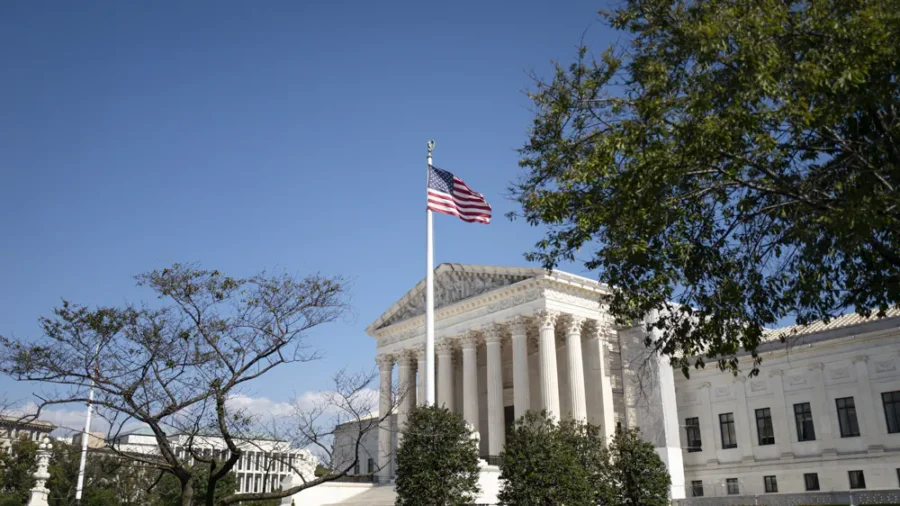The U.S. Supreme Court on Monday declined to hear a Biden administration appeal involving Texas, leaving unresolved whether physicians in states with the most restrictive abortion laws must perform the procedure in certain emergency circumstances.
The justices handed down their decision on Oct. 7 without offering an explanation, leaving intact a ruling by the Fifth U.S. Circuit Court of Appeals in favor of Texas.
At the heart of the Texas case is the Emergency Medical Treatment and Labor Act (EMTALA), a federal law that requires emergency rooms in hospitals receiving Medicare funds to provide “necessary stabilizing treatment” to patients who arrive with an “emergency medical condition.” With respect to pregnant women, an emergency medical condition includes one that endangers the health of the woman or her unborn child.
Following the Supreme Court’s 2022 decision to overturn Roe v. Wade and send the question of abortion access back to individual states, the U.S. Department of Health and Human Services (HHS) issued guidance asserting that abortion qualifies as stabilizing care under EMTALA.
While the federal law itself leaves it up to the physician to determine what is an emergency medical condition for a pregnant woman, the guidance listed specific examples—such as ectopic pregnancy, complications from miscarriage, and severe preeclampsia—that HHS said would necessitate abortion to stabilize a patient.
“In no uncertain terms, we are reinforcing that we expect providers to continue offering these services and that federal law preempts state abortion bans when needed for emergency care,” HHS Secretary Xavier Becerra said in a statement announcing the guidance.
Texas responded by suing HHS, arguing that the federal agency had overstepped its authority. The guidance, according to Texas Attorney General Ken Paxton, introduced new abortion-related requirements that “do not exist under federal law” and would transform “every emergency room in the country into a walk-in abortion clinic.”
“This administration has a hard time following the law, and now they are trying to have their appointed bureaucrats mandate that hospitals and emergency medicine physicians perform abortions,” Paxton said at that time.
Both a district court and the 5th Circuit sided with Texas, ruling that EMTALA does not preempt the restrictions under Texas law when it comes to abortion. Specifically, the courts found that EMTALA does not preempt the Texas Human Life Protection Act, which prohibits abortions unless the pregnancy “places the female at risk of death or poses a serious risk of substantial impairment of a major bodily function.”
The Biden administration then appealed to the Supreme Court, pointing to a similar case in Idaho. In that case, the high court voted 6–3 to dismiss an appeal by Idaho officials, leaving in place an appeals court ruling that permits doctors to perform emergency abortions in the state as the litigation continues.
However, the Supreme Court’s dismissal of the Idaho case did not touch the underlying legal question of whether EMTALA conflicts with state abortion laws. The decision has drawn criticism from abortion-rights advocates, as well as from Justices Samuel Alito and Ketanji Brown Jackson, who argued for different reasons that the court should have addressed the case’s merits.
“While this court dawdles and the country waits, pregnant people experiencing emergency medical conditions remain in a precarious position, as their doctors are kept in the dark about what the law requires,” Jackson wrote in her dissenting opinion.
Alito, meanwhile, wrote in a separate dissenting opinion that the Biden administration’s interpretation of EMTALA was “plainly unsound,” given that the statute’s plain language “unambiguously demands” that Medicare-funded hospitals protect the health of both the pregnant woman and her unborn child.
“The text of EMTALA conclusively shows that it does not require hospitals to perform abortions,” he wrote.
From The Epoch Times

